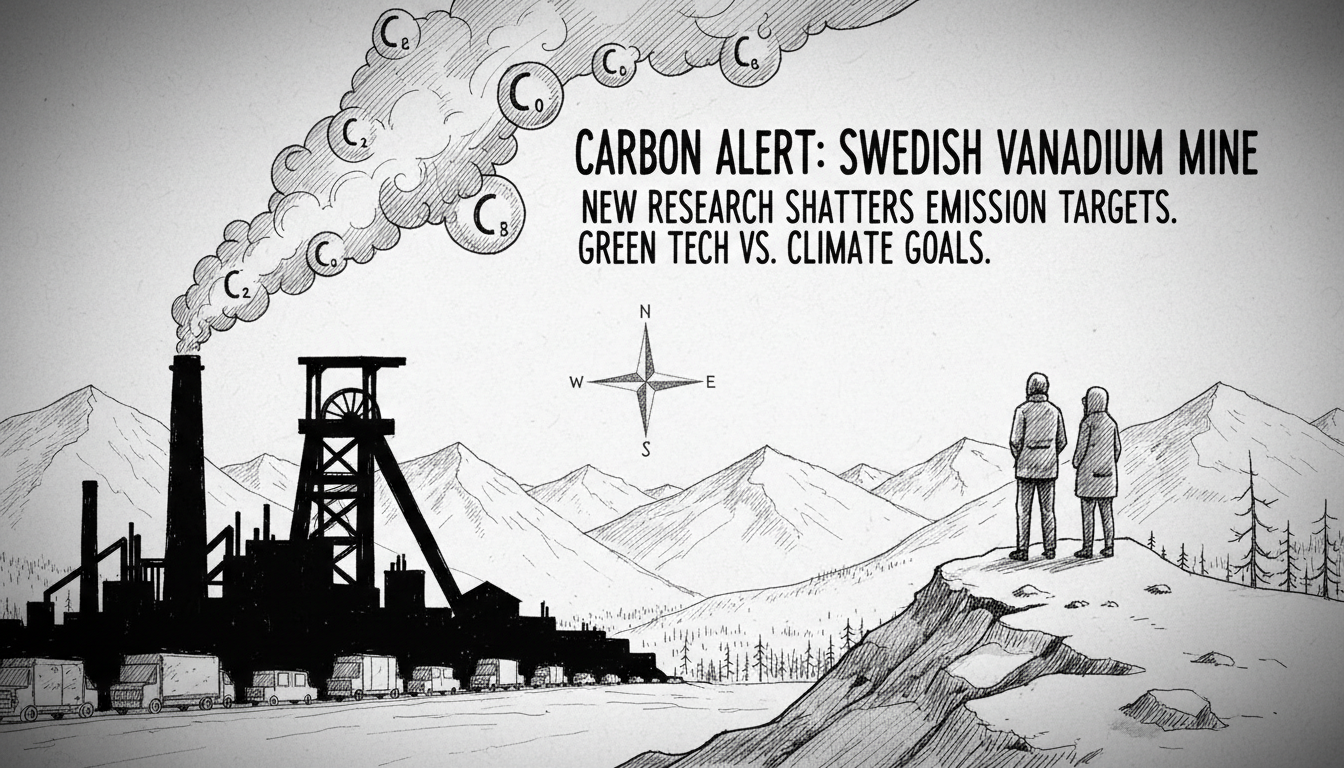A proposed vanadium mining project in Oviken, Jämtland could generate massive carbon emissions according to university researchers. The mine planned by Aura Energy would extract the critical metal used in steel production and flow batteries for renewable energy storage.
Professor Jon-Petter Gustafsson of the Swedish University of Agricultural Sciences calculated the eleven-year mining operation would release approximately 20 million tons of carbon dioxide equivalents. This exceeds Sweden's annual road traffic emissions. The professor emphasized these emissions would come from just one vanadium mine while other companies plan similar operations nationwide.
Aura Energy seeks to mine 42 million tons of alum shale containing vanadium. To extract the metal, the company must burn off the shale's organic carbon content through a process called roasting. This involves crushing the rock and heating it to 600-700 degrees Celsius.
Other scientists support the emission estimates. Olof Martinsson, an ore geologist from Luleå University of Technology, confirmed the calculations appear accurate given the planned combustion process.
The mining company has not addressed these specific carbon emissions in its concession application. Aura Energy CEO Nigel Jones stated emission reporting would occur during the environmental permit phase. The company currently declines to comment on the emission calculations but promises to develop a carbon management plan.
Government officials remain divided on the issue. Climate Minister Romina Pourmokhtari declined interview requests, while her state secretary highlighted ongoing environmental reviews. The government's climate experts reportedly question the emission calculations but provide no explanation.
Vanadium serves crucial roles in Sweden's green transition. The metal strengthens steel for wind turbines and enables large-scale energy storage through flow batteries. This creates tension between climate goals and mineral needs.
Sweden's preliminary climate statistics show the country emitted 47.5 million tons of greenhouse gases last year. Road transport accounted for nearly 16.9 million tons. Emissions increased about 7 percent compared to the previous year, mainly due to reduced biofuel requirements increasing fossil diesel use.
The Oviken mine represents a broader Nordic dilemma. Nations seek critical minerals for renewable energy while facing the environmental costs of extraction. Sweden's extensive environmental review process will now face this difficult balance between mineral supply chains and emission reduction targets.
Multiple vanadium mining projects currently await approval across Sweden. The Oviken case may set important precedents for how the country manages competing environmental priorities in its mining sector.

